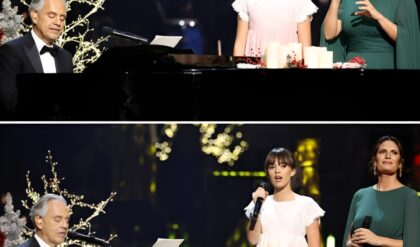Rachel Zegler, the 24-year-old Golden Globe winner known for West Side Story and Disney’s forthcoming Snow White, has found herself at the center of a storm following her 2025 West End debut in Andrew Lloyd Webber’s Evita at the London Palladium. The production, directed by Jamie Lloyd, was poised to be a defining moment for Zegler, who took on the iconic role of Eva Perón. However, reports of her alleged firing after a “terrible” performance, coupled with a mid-show exit on July 24, 2025, have fueled intense speculation and polarized reactions. While some sources claim her dismissal was due to unprofessional conduct and poor ticket sales, others argue the narrative is exaggerated, rooted in existing controversies around Zegler’s public persona. This article examines the Evita production, Zegler’s role, the events leading to the firing rumors, and their impact on her career, drawing on web sources and social media sentiment.
The Rise and Fall of Evita’s West End Revival
Evita, a musical chronicling the meteoric rise of Argentine first lady Eva Perón, is a theatrical juggernaut, blending Webber’s soaring score with Tim Rice’s incisive lyrics. The 2025 revival, which began previews on June 14 and opened on July 1, aimed to reimagine the classic with bold staging choices, including performing “Don’t Cry for Me Argentina” on the Palladium’s exterior balcony to crowds on Argyll Street. Zegler’s casting was announced with fanfare, her vocal range and emotional depth seen as ideal for the demanding role. Early reviews were glowing, with The Guardian calling her “phenomenal” and Variety noting her performance gave “goosebumps.” Her rendition of the iconic ballad even charted in the U.K., a rare feat for a theater production.
The production drew crowds, with fans lining up to catch Zegler’s balcony performances, and social media buzz amplified by TikTok videos and posts from theatergoers. However, Jamie Lloyd’s decision to stage the balcony scene outdoors sparked debate. Some ticket-holders, paying up to £350 ($470), felt cheated watching the song on a screen inside, while passersby enjoyed it for free. This creative choice, meant to symbolize Eva’s connection to the Argentine masses, became a lightning rod for criticism, with one X user lamenting, “I’ve paid for a premium experience and she’s singing to the street?”
The turning point came on July 24, when Zegler abruptly left the stage before intermission due to a reported illness. Understudy Bella Brown, who played Perón’s Mistress in Act 1, stepped in, delivering a stunning second act that earned a nearly five-minute standing ovation. Brown’s Instagram Stories post praised the “pillars of a show” like swings and understudies, earning her widespread acclaim as a “star-making” moment. Zegler returned the next night, July 25, and later shared an emotional Instagram post, thanking her cast for their unity and calling Brown “MY ANGEL REG ZEG!!”. Yet, the incident fueled a narrative of instability, with some outlets and fans speculating about deeper issues behind the scenes.
Firing Rumors and the “Terrible Performance” Narrative
The claim that Zegler was “fired again” after a “terrible” performance stems from a mix of sensationalized reports and existing backlash against her. A June 3, 2025, Instagram Live attributed to Zegler—though its authenticity is unverified—allegedly saw her blame cast conflicts for walking out of rehearsals, leading to a canceled show and a “collapse” of the production. This narrative conflicts with the timeline, as Evita was actively running in July and scheduled through September 6. Reports of low ticket sales, cited by NewsNation, suggested Zegler was “unhireable” due to the show’s struggles, with tickets available for most performances. However, other sources, like LondonWorld, noted Evita as one of the West End’s best-selling shows, with sold-out nights driven by Zegler’s star power.
The “terrible performance” label appears exaggerated, rooted more in Zegler’s polarizing public image than in critical consensus. Her July 24 exit was due to a health scare, not a performance issue, and she completed a full matinee earlier that day. Critics consistently praised her portrayal, with The Independent calling her “enthralling” and WhatsOnStage describing the production as an “event with a capital E”. The firing rumors may trace back to her pre-scheduled absences on July 14, July 28, August 11, and August 25, when Bella Brown was slated to perform, a standard practice for theater leads to manage demanding schedules. Yet, social media amplified these absences into a narrative of dismissal, with posts on X claiming, “Rachel Zegler ruining everything she’s a part of still” and labeling her a “box office disaster.”
Zegler’s Controversial Persona and Public Backlash
Zegler’s Evita saga cannot be separated from her broader public image, which has been fraught with controversy since her 2021 breakout in West Side Story. Her casting as Maria, a Puerto Rican character, drew scrutiny over her Colombian-Polish heritage, despite her Latina identity. More significantly, her comments during the Snow White press tour—describing the 1937 Disney classic as “dated” and reimagining Snow White as a leader—sparked backlash from fans who felt she disrespected the original. Political posts during the 2024 U.S. election further polarized audiences, with some labeling her “woke” or “too dangerous to touch”. These controversies have painted Zegler as an “easy target,” as her Evita co-star James Olivas told The Hollywood Reporter, arguing that criticism often stems from her identity as a young woman of color.
The Evita casting itself reignited debates about cultural representation. Some fans argued that an Argentine actress should have played Eva Perón, a national icon, echoing earlier critiques of Zegler’s roles. This sentiment, combined with her mid-show exit, fueled a narrative of unprofessionalism, with X users suggesting she “immediately signed onto something else” or was “not cut out for entertainment”. Supporters countered this, with one post stating, “People forget that actors don’t write the scripts. Rachel Zegler’s just doing her job, and doing it well”. Her emotional response on July 28, praising her cast’s unity and resilience, aimed to quell the controversy, but the “fired again” narrative persisted, amplified by clickbait headlines.
The Role of Understudies and Theater’s Resilience
The July 24 incident highlighted the unsung heroism of understudies in live theater. Bella Brown’s seamless takeover, particularly her balcony rendition of “Don’t Cry for Me Argentina,” was a triumph, with audience members noting her ability to carry Zegler’s intensity. Her Instagram posts emphasized the importance of swings and covers, a sentiment echoed by Zegler, who lauded her cast’s teamwork. The production’s ability to recover after a 40-minute pause underscored its strong rehearsal practices, but the focus remained on Zegler’s absence, overshadowing Brown’s moment.
The balcony staging, while innovative, intensified the fallout. Critics argued it alienated paying audiences, with Metro UK quoting fans who felt “ripped off” watching a screen while non-ticket-holders saw Zegler live. However, Metro’s Danni Scott defended the choice, noting it aligned with the musical’s themes of Eva’s connection to the masses. The controversy reflects broader tensions in theater, where artistic risks can clash with audience expectations, especially in high-profile productions.
Impact on Zegler’s Career and Evita’s Future
The firing rumors, while unconfirmed, pose a challenge for Zegler’s burgeoning career. Her performances in West Side Story and The Hunger Games: The Ballad of Songbirds & Snakes established her as a talent to watch, but the Snow White backlash and Evita drama have cast a shadow. The Hollywood Reporter reported discussions of a Broadway transfer for Evita, suggesting confidence in the production’s appeal, but Zegler’s involvement remains uncertain if public perception sours further. Her co-star James Olivas defended her, calling the backlash “manufactured outrage” and emphasizing her professionalism.
For Evita, the revival remains a critical success, with Elaine Paige, the original Eva in 1978, attending a performance and praising Zegler’s rendition. The production’s chart success and sold-out shows counter the “flop” narrative, but the controversy has shifted focus from its artistic merits. Zegler’s health scare and the subsequent online vitriol highlight the pressures faced by young performers, particularly women of color, in the spotlight.
Conclusion
Rachel Zegler’s Evita journey is a microcosm of her polarizing career: a blend of undeniable talent, bold artistic choices, and relentless scrutiny. The claim that she was “fired again” after a “terrible” performance appears to be a distortion, rooted in her July 24 exit due to illness and amplified by existing controversies. Her praised portrayal, the production’s resilience, and Bella Brown’s triumphant understudy performance underscore the strength of the Evita revival, yet the narrative of failure persists, driven by sensationalized reports and social media backlash. As Evita continues its run through September 6, 2025, and eyes a Broadway future, Zegler’s experience reflects the challenges of navigating fame in an era of instant judgment. Whether she emerges stronger or faces further hurdles, her Evita saga is a testament to the highs and lows of live theater, where every performance is a gamble, and every star is under the microscope.





